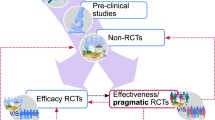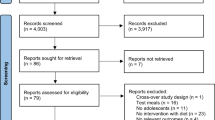Abstract
Rationale:
Research involving humans is regulated by regulatory authorities through their specific requirements and controls. The Healthy Life Style in Europe by Nutrition in Adolescence Cross-Sectional Study (HELENA-CSS) is a multicenter biomedical research study of adolescents in several representative European cities, which requires satisfying medico-regulatory requirements including Independent Ethics Committee (IEC) approval and agreement by the national or local regulatory authorities. To achieve a high level of quality assurance relating to ethical issues, we followed the good clinical practices (GCP) described at the International Conference on Harmonisation (ICH), which we adapted to the national and local situations of each of the 11 participating cities in 10 European countries.
Objective:
The main objective of the HELENA-CSS is to evaluate reliable and comparable data of nutritional habits and lifestyle in a representative sample of European adolescents. The aim of this paper is to present the methods relating to the ethical and regulatory issues of this study and to describe the current state of the medico-regulatory requirements involved in conducting this kind of study in each country.
Materials and Methods:
Following the GCP–ICH guidelines, a protocol describing the HELENA-CSS was written and approved by all partners. In the pilot study, a case report form adapted to the study objectives and its manual of operation was constructed and used by all partners. All information letters to adolescents and their parents and consent forms were first written in English, then translated into the local language, and adapted to each local situation. All documents were then checked centrally for any deviation and corrected if required. An operation manual relating to ethical issues and other medico-regulatory requirements was also developed. This paper presents the current status of the medico-regulatory requirements from each HELENA-CSS participant country.
Results:
Before the beginning of the study, most centers had satisfied the medico-regulatory requirements of IEC approval and agreement with other national or local regulatory authorities/organizations. For a few centers, some problems were detected and corrective actions were taken to improve missing information to reach a high level of quality assurance of ethical issues.
Conclusion:
The GCP–ICH guidelines about nontherapeutic biomedical research are interpreted and applied differently across Europe. This study shows that high-quality nontherapeutic biomedical research can address the ethical issues included in the GCP–ICH regulations and can be harmonized among the HELENA European partners.
This is a preview of subscription content, access via your institution
Access options
Subscribe to this journal
Receive 12 print issues and online access
$259.00 per year
only $21.58 per issue
Buy this article
- Purchase on Springer Link
- Instant access to full article PDF
Prices may be subject to local taxes which are calculated during checkout


Similar content being viewed by others
References
Permissible medical experiments: trials of war criminals before the Nuremberg, Military Tribunals under Control Council Law No. 10: Nuremberg October 1946–1949 US Government Printing Office (DHEW publication): Washington, DC, 1979.
World Medical Association. Recommendations guiding medical doctors in biomedical research involving human subjects. Helsinki: 18th World Assembly, 1964. Revised 52nd WMA World General Assembly, Edinburgh, Scotland, 2000.
European Parliament Directive 2001/20/CE of the European Parliament and Council of 4 April 2001. Official Journal 2001; L121: 34–44.
Royal College of Paediatrics and Child heath: Ethics Advisory Committee. Guidelines for the ethical conduct of medical research involving children. Arch Dis Child 2000; 82: 177–182.
Silverman HJ, Druml C, Lemaire F, Nelson R . The European Union Directive and the protection of incapacitated subjects in research: an ethical analysis. Intensive Care Med 2004; 25: 1723–1729.
National Commission for the Protection of Human Subjects of Biomedical and Behavorial Research. The Belmont Report: Ethical Principles and Guidelines for the Protection of Human Subjects of Research. US Government Printing Office: Washington, DC, 1979.
European Forum for Good Clinical Practices. The procedure for the ethical review of protocols for clinical research projects in the European Union. Int J Pharma Med 2007; 21: 1–113.
Demotes-Mainard J, Ohmann C . European Clinical Research Infrastructure Network: promoting harmonisation and quality in European clinical research. Lancet 2005; 365: 107–108.
Demotes-Mainard J . Towards a European Clinical Research Infrastructures Network: the ECRIN programme. Thérapie 2004; 59: 151–153.
Nelson RM, Reynolds WW . Child assent and parental permission: a comment on Tait's ‘Do they understand? Anesthesiology 2003; 98: 1–2.
Miller VA, Drotar D, Kodish E . Children's competence for assent and consent: a review of empirical findings. Ethics Behav 2004; 14: 255–295.
Miller VA, Nelson RR . A developmental approach to child assent for nontherapeutic research. J Pediatr 2006; 149: 525–530.
Appelbaum PS, Roth LH, Lidz CW, Benson P, Winslade W . False hopes and best data: consent to research and the therapeutic misconception. Hastings Center Report 1987; 17: 20–24.
Parnowski KJ, Allen DM, Mayhall C, Kelly PA . Readibility of pediatric biomedical research informed consent forms. Pediatrics 1990; 85: 58–62.
Ekunwe EO, Kessel R . Informed consent in the developing world. Hastings Center Report 1984; 14: 22–24.
Acknowledgements
The HELENA Study takes place with the financial support of the European Community Sitxth RTD Framework Programme (Contract FOOD-CT-20056007034). The content of this paper reflect only the authors’ views and the European Community is not liable for any use that may be made of the information contained therein. The researchers from the University of Zaragoza, Spain (MIM, LAM) are complementary supported by FUNDACIÓN MAPFRE (Spain).
Author information
Authors and Affiliations
Consortia
Corresponding author
Additional information
Conflict of interest
Frédéric Gottrand has received consulting fees from Numico Clinical Nutrition, lecture fees from SMS and grant support from Danone Research. The remaining authors state no conflict of interest.
Rights and permissions
About this article
Cite this article
Béghin, L., Castera, M., Manios, Y. et al. Quality assurance of ethical issues and regulatory aspects relating to good clinical practices in the HELENA Cross-Sectional Study. Int J Obes 32 (Suppl 5), S12–S18 (2008). https://doi.org/10.1038/ijo.2008.179
Published:
Issue Date:
DOI: https://doi.org/10.1038/ijo.2008.179
Keywords
This article is cited by
-
Association between PTPN1 polymorphisms and obesity-related phenotypes in European adolescents: influence of physical activity
Pediatric Research (2023)
-
Clinical and physical characteristics of thinness in adolescents: the HELENA study
European Journal of Nutrition (2023)
-
Effect of Diabetic Neuropathy on Reparative Ability and Immune Response System
Molecular Biotechnology (2023)
-
Association between adherence to the EAT-Lancet sustainable reference diet and cardiovascular health among European adolescents: the HELENA study
European Journal of Clinical Nutrition (2023)
-
Relative validity of the Planetary Health Diet Index by comparison with usual nutrient intakes, plasma food consumption biomarkers, and adherence to the Mediterranean diet among European adolescents: the HELENA study
European Journal of Nutrition (2023)



